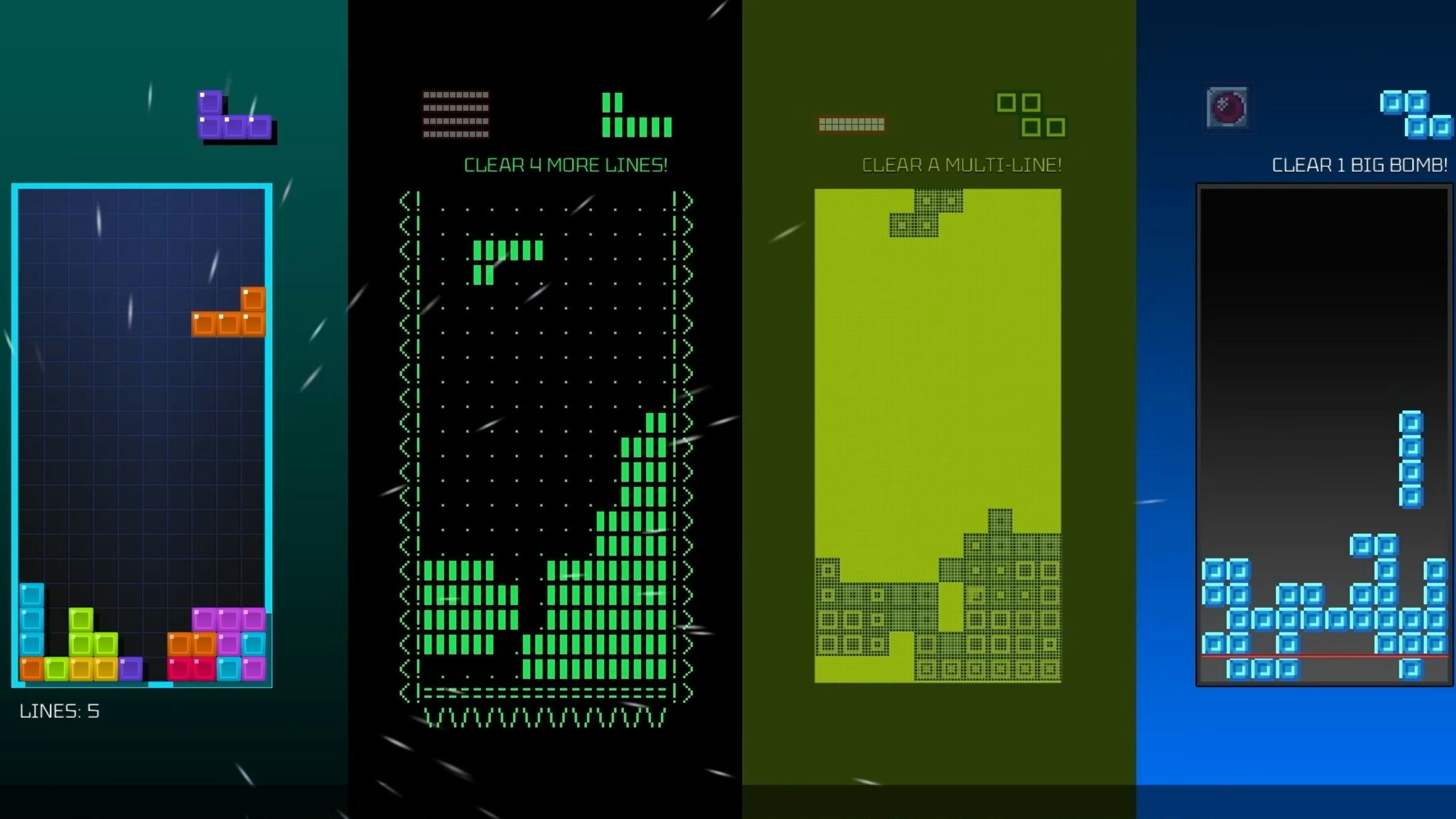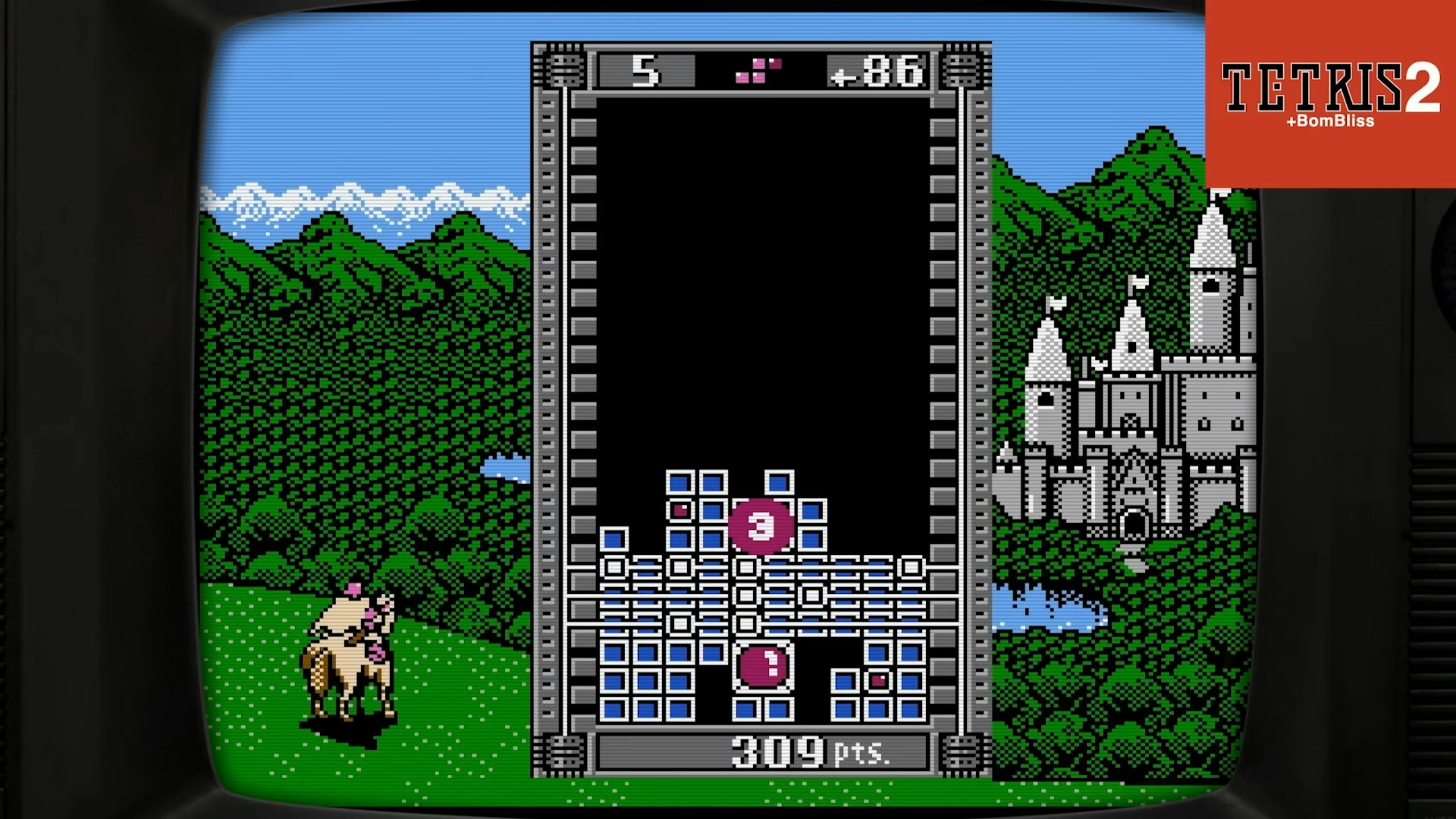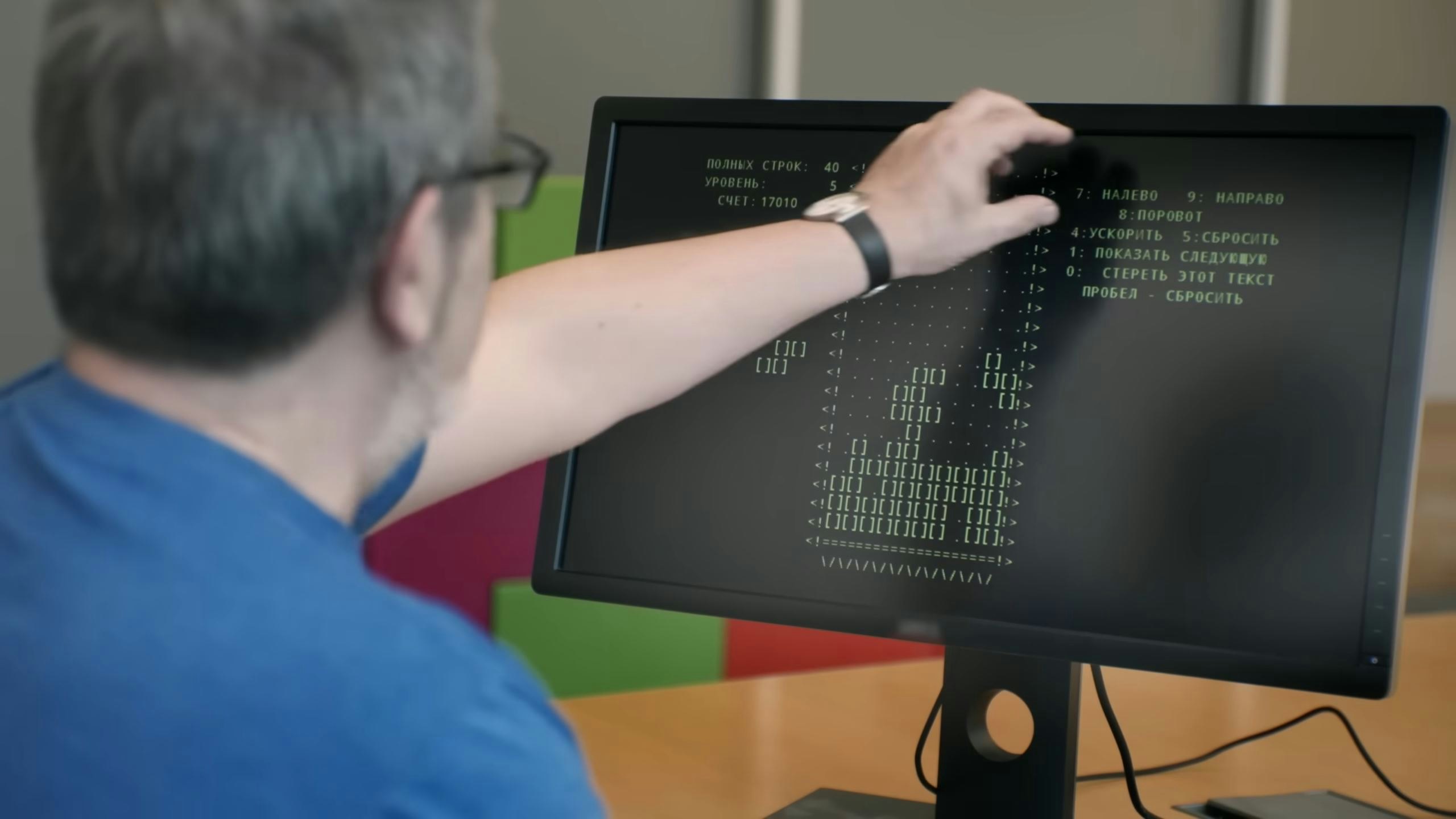
Tetris might not sound like the most interesting game to reminisce on, but it just so happens to be one of the biggest announcements from this week’s Nintendo Direct. That’s where publisher Digital Eclipse revealed Tetris Forever, a compilation of multiple Tetris games from over the years, which doubles as a documentary chronicling the iconic game’s development and legacy.
If that concept sounds familiar, it’s likely because you’re thinking of 2023’s The Making of Karateka or this year’s Llamasoft: The Jeff Minter Story. Both of those previous releases from Digital Eclipse shared Tetris Forever’s format, using archival footage, new interviews, and versions of classic games representing different points in their development.
Tetris Forever is due out later this year, for the original game’s 40th anniversary. It will include 15 different versions of Tetris, ranging from a recreation of the original game running on the former Soviet-era Electronika 60 computer to twists on the formula like Bombliss, which adds exploding pieces to the board. Other highlights include Tetris Battle Gaiden, a multiplayer game where players use special moves to interfere with their competitors. That’s all topped off with Tetris Time Warp, a brand-new game with four-way multiplayer that constantly changes how you play by swapping to gameplay styles of different versions of Tetris.
But its set of 15 games is just half of what makes Tetris Forever so special. Along with the games, it includes more than an hour of documentary footage following Tetris creator Alexey Pajitnot and Henk Rogers, founder of The Tetris Company, sharing the story of how Tetris came to be.

Put that all together and Tetris Forever is way more exciting than just another release of one of the world’s most recognizable games. Some titles it features, including Tetris Battle Gaiden, have never been released outside of Japan until now, meaning it’s not just preserving history, but also bringing some games to entirely new audiences.
Its importance goes far beyond that, though. For one thing, game development tends to be a secretive practice, with publishers and developers alike putting tight restrictions on what individuals within the company are able to share. In the early days of game development, it was common for developers to go completely uncredited, and gaming’s status as a new oddity that few took seriously means that stories from around the medium’s inception were often ignored or never told at all.

On top of that, gaming has a major problem with preservation that continues to this day. Releases from decades or even just years ago are sometimes impossible to play without emulation, and efforts from publishers are trying to tamp down on that, too. A shocking study from the Video Game History Foundation and Software Preservation Network in 2023 found that 87 percent of games made before 2010 are no longer available for sale at all. Collections like Tetris Forever obviously can’t solve gaming’s preservation crisis single handedly, but they’re currently one of the best ways we have of keeping some important parts of the medium’s history alive.
Tetris Forever doesn’t look like it’s going as far as The Making of Karateka, which included archival information like design documents and notes from Karateka’s production, unlike with playable prototypes from various stages of its development. Where Digital Eclipse’s previous release was something of a playable museum exhibit, Tetris Forever is more of a straightforward game collection with a documentary thrown in. That could actually pay off by attracting more players who are just interested in the games and find themselves learning a bit of vital video game history on the side.







